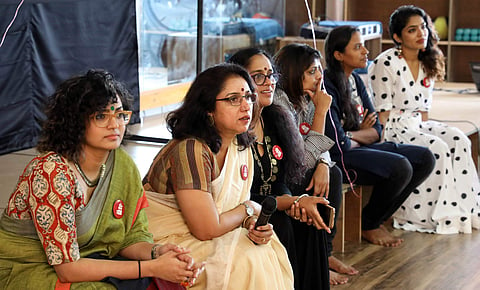Hema Committee report calls for major reforms in Malayalam film industry
THIRUVANANTHAPURAM: The Hema Committee report has shed light on alarming issues within the Malayalam film industry, urging significant reforms to address the deep-rooted challenges faced by artists, particularly women. In the report, KB Valsala Kumari, a committee member, documented the revelations made by a prominent film actress and other industry workers, stating that as their accounts unfolded, many revered icons began to lose their standing.
“These are people whom society looks up to with great reverence and admiration. These are people who have influence and power to change the course of Malayalam movies; unfortunately, these are the very same people who by their acts of commission and omission are contributing to the degeneration of the profession,” she wrote.
One of the key recommendations by Valsala Kumari is the necessity of a written contract before starting a movie project, involving all stakeholders, including artists and technicians. She emphasised that the director should fully disclose details about the actress before the contract is signed. Furthermore, basic online training in gender sensitivity should be mandated, given the numerous instances of sexual misconduct and harassment reported by witnesses.
The report also calls for strict enforcement of the non-consumption of alcohol and drugs on sets and the regulation of artists' and technicians' remuneration. Valsala Kumari highlighted the entrenched hierarchy within the Malayalam film industry, where men occupy dominant positions, and women are often relegated to subordinate roles, serving the interests and convenience of their male counterparts. Additionally, she pointed out the absence of an effective forum for artists and technicians to seek redressal for their grievances.
To address these issues, Valsala Kumari proposed that the government take the lead in establishing a tribunal with the judicial powers of a District Court Judge, who is gender-sensitive. This tribunal should be empowered to handle all matters, including sexual harassment, service conditions, breaches of written contracts, and illegal banning or ousting of individuals from movies. The High Court should serve as the appellate authority. She also recommended conducting background checks on all individuals associated with films and filing complaints with the local police whenever a criminal offense is committed.
The recommendations aim to bring about a significant shift in the working conditions within the Malayalam film industry, ensuring a safer and more equitable environment for all.

